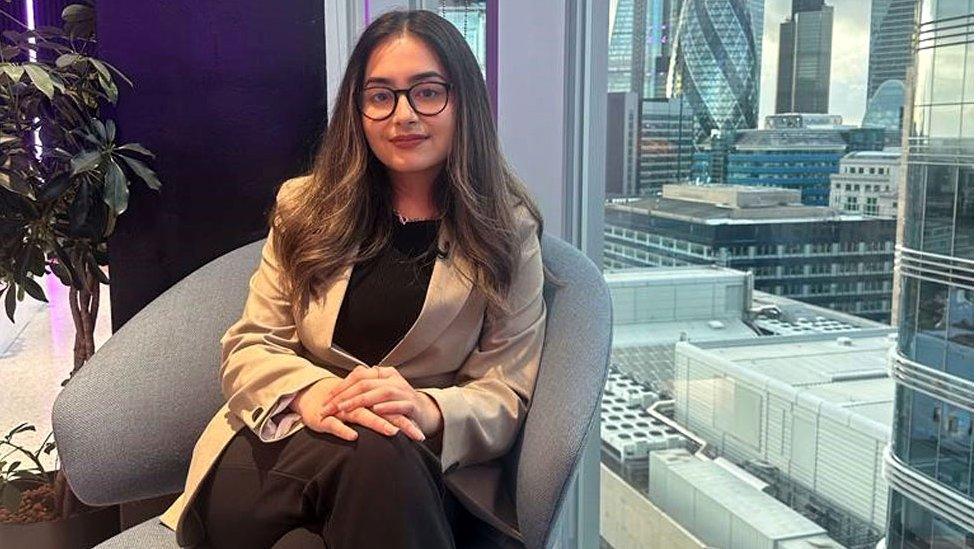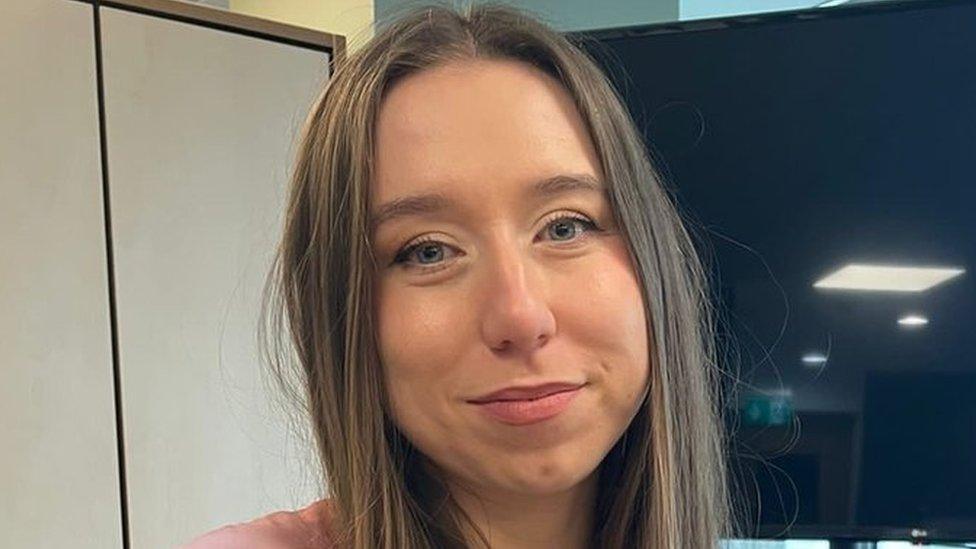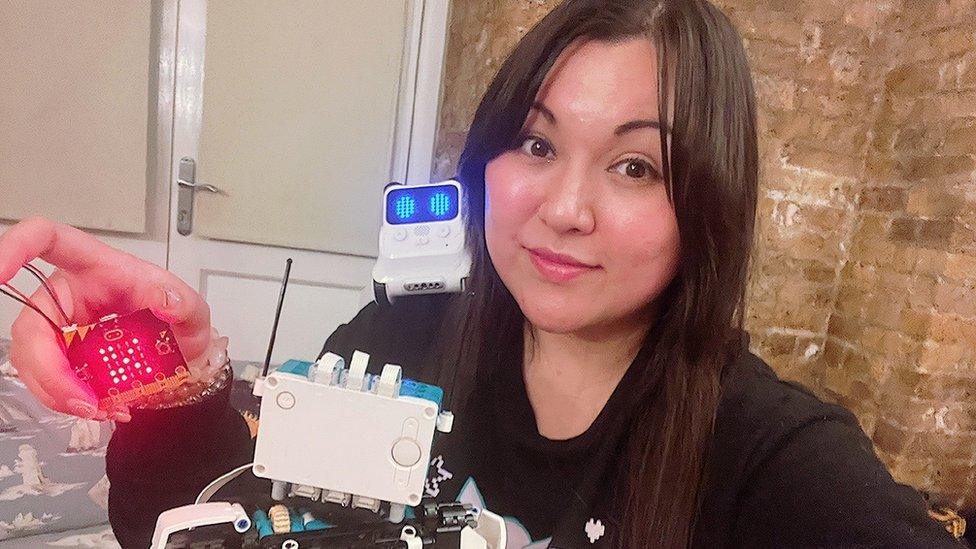Birmingham worker 'said yes to everything to find the perfect job'
- Published

Ashruti, pictured in London, said she followed her curiosity to find a new career path
A graduate who struggled to find a career path said mentors and skills training helped her get a good job.
Ashruti Rajesh, 22, felt a bit jaded after "writing 4,000-word essays" for her English Literature degree and sought something completely different.
"After finishing university I felt quite lost and didn't know what I wanted to do. I think I followed my curiosity for most of it," she said.
"I just found opportunities and said yes to everything."
Ashruti, from Leicester, embraced free digital skills training and support from online and offline communities and urged other job hunters to take similar opportunities.
She began working as a data analyst for BT in Birmingham city centre in February.
"I think take power in community and in mentors," she said. "Mentoring can be a big advantage. Even if it's from someone with a year's experience of work, their guidance can be very valuable."
She had enrolled in the BT Group FastFutures programme for 16-to-24 year olds after her final year at Warwick University in 2021, taking modules which included data, finance, marketing and teamwork.
Ashruti had spent quite a lot of time studying alone due to the coronavirus pandemic which struck during her second year.
She believes the pandemic made it more difficult for young people to adjust to the world of work and socially, and in a tough jobs market.
"I think it's hard for a lot of people to find jobs, it was hard enough already," she said.

Ashruti (third from left) and other women from Inclusive Code recently went to the Women in Tech Excellence Awards
The course sparked a love for data and she also found having an industry mentor and doing a mock interview beneficial.
BT Group, a founding partner of FastFutures, said it was set up during the first year of the pandemic to help young people who were "missing out" on work experience and education.
It has since evolved to a shorter, six-week course and supported more than 5,700 young people from education to employment.
Figures released, external by the Office for National Statistics (ONS) last month showed 724,000 of people aged 16-24 in the UK, about 10.6%, were not in education, employment or training (NEET) from July to September 2022 - a rise of 0.2% on the previous quarter. The ONS said the increase of 12,000 was mainly women.
The overall NEET figure is down by 0.5% compared with the end of 2019.
Code First Girls
BT Group, whose programmes include training for secondary school pupils, said the latest statistics show there is work to be done by employers to increase digital skills.
"Businesses across the UK have a huge part to play in ensuring that young people have the skills they need to build a future that is fulfilling and supports the wider economy," said Victoria Johnson, its digital impact and sustainability campaigns and engagement director.
For Ashruti, the interest in data sparked by the programme led her to search online for free coding resources and she came across Code First Girls (CFG), which is helping women pursue careers in tech.
She completed a "nanodegree" based around data and software, joining tens of thousands of women now trained by the organisation.
Ashruti's previously worked in a soft play centre and restaurant and she said her role was "quite different from anything I have done before".
However, she added she could "see overlaps" with studying English Literature at Warwick, because looking at data for trends and patterns, can be similar to examining texts.
At BT Group she has banded with seven other women with CFG training to form Inclusive Code, who are promoting diversity and inclusion in tech.
They are also arranging to speak to schools about working in tech and spread the word "computer science is for everyone".

The Inclusive Code women, who are primarily based in Birmingham, want to tell pupils about the benefits of working in tech
Ashruti said there many free resources to help job hunters of all ages "build skills from scratch", including the government's information on Skills Bootcamps, external.
She added young people should remember it's OK to steer away from "what you know", and following your curiosity can pay off.
"If I had thought I would be doing this, this time last year I wouldn't have believed it," she said.

Follow BBC West Midlands on Facebook, external, Twitter, external and Instagram, external. Send your story ideas to: newsonline.westmidlands@bbc.co.uk
- Published15 July 2022

- Published4 December 2022

- Published18 January 2022

- Published19 May 2021
